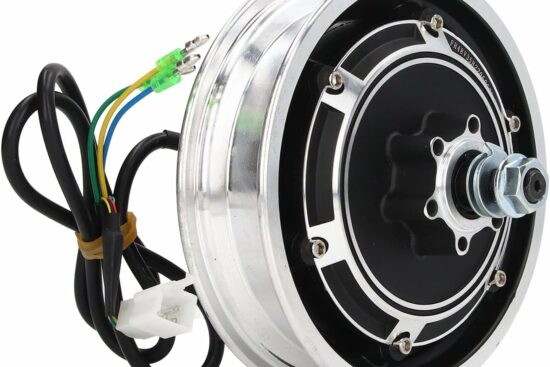
Have you ever wondered if e-scooters will become legal in the UK? Well, you’re not alone. With the increasing popularity of these electric scooters, many people are curious to know if they’ll ever be able to ride one legally on UK roads. The current laws make it illegal to ride e-scooters on public roads, but there has been a lot of debate surrounding this issue. In this article, we’ll explore the reasons why e-scooters are currently illegal in the UK and discuss the potential for future legalization. So, if you’re interested in the future of e-scooters in the UK, keep reading to learn more.

Current regulations on e-scooters in the UK
Existing laws on e-scooter use
At the moment, e-scooters are not entirely legal in the UK. Under current regulations, e-scooters are classified as Personal Light Electric Vehicles (PLEVs) and are only allowed on private property with the landowner’s permission. Riding them on public roads and pavements is illegal, and doing so can result in a fine, penalty points on your driving license, and even seizure of the e-scooter.
Restricted areas for e-scooter usage
In addition to the general ban on riding e-scooters in public spaces, specific areas may have further restrictions. For instance, some cities have implemented trial schemes for e-scooters where designated zones are allocated for their use. Outside of these zones, riding e-scooters is still prohibited.
Penalties for illegal e-scooter use
If caught riding an e-scooter in a public space, you can face a fine of up to £300 and potential points on your driving license. The police have the authority to seize the e-scooter, and if you are involved in an accident while riding illegally, you may face even more severe consequences.
Benefits of legalizing e-scooters in the UK
Reduced traffic congestion
One of the main advantages of legalizing e-scooters in the UK is the potential to reduce traffic congestion in urban areas. E-scooters are smaller and more agile than cars, allowing riders to navigate through traffic more efficiently. By promoting the use of e-scooters as a viable alternative to cars for short journeys, we can alleviate congestion on the roads, leading to smoother traffic flow for everyone.
Eco-friendly transportation option
As the world grapples with the challenges of climate change, finding sustainable modes of transportation is crucial. E-scooters offer a greener alternative to traditional vehicles, as they emit zero emissions during operation. With their electric motors and rechargeable batteries, e-scooters can reduce air pollution and contribute to a cleaner, healthier environment.
Promoting micro-mobility
Legalizing e-scooters can also support the concept of micro-mobility, which advocates for short-distance travel using sustainable modes of transportation. Instead of relying solely on cars or public transport, e-scooters provide a convenient and affordable option for covering shorter distances. This promotes a healthier and more active lifestyle while helping reduce the carbon footprint associated with individual transportation.
Safety concerns with e-scooters
Collisions and accidents
One of the main safety concerns associated with e-scooters is the risk of collisions and accidents. Because e-scooters share the same spaces as pedestrians and cyclists, there is a potential for accidents caused by collisions or maneuvering errors. To mitigate this risk, implementing clear rules and regulations around e-scooter use, along with appropriate training and education for riders, is necessary.
Inadequate infrastructure for e-scooters
Another safety concern is the lack of dedicated infrastructure for e-scooters. At present, roads, cycle lanes, and pavements are primarily designed with pedestrians and cyclists in mind. E-scooters need suitable infrastructure that accommodates their unique characteristics, such as dedicated lanes or areas, to ensure the safety of both riders and pedestrians.
Rider and pedestrian safety
Ensuring rider and pedestrian safety is of paramount importance when legalizing e-scooters. Riders should be equipped with appropriate safety gear, such as helmets and reflective clothing. Additionally, strict regulations should be enforced, including speed limits and rules governing where e-scooters can be ridden. Public awareness campaigns can play a vital role in educating both riders and pedestrians about responsible shared use of public spaces.

Successful e-scooter legalization models in other countries
Case study: Germany
Germany has successfully implemented e-scooter legalization, leading to increased adoption and usage. The German model involves clear regulations on speed limits, age restrictions, and insurance requirements for e-scooter riders. Additionally, designated lanes and parking areas have been created to ensure the safe and efficient integration of e-scooters into existing transport networks.
Case study: France
France has also legalized e-scooters and established guidelines for their use. Similar to Germany, France has implemented speed restrictions and safety requirements for riders. However, France has also designated specific areas where e-scooters are not allowed, such as pedestrian zones and certain streets, ensuring a higher level of safety for pedestrians.
Lessons learned from international experiences
The success of e-scooter legalization in Germany and France highlights the importance of clear regulations, enforcement mechanisms, and dedicated infrastructure. By studying and adopting the best practices from these countries, the UK can create a framework that balances safety and innovation, allowing e-scooters to thrive.
Public opinion on e-scooter legalization
Support from environmental groups
Environmental groups widely support the legalization of e-scooters due to their potential to reduce emissions and promote sustainable transportation. By endorsing e-scooters as a viable alternative to cars, these groups believe that we can significantly reduce air pollution, combat climate change, and improve air quality in urban areas.
Concerns raised by safety advocates
Safety advocates, on the other hand, express concerns about the risks associated with e-scooters. They emphasize the need for robust safety measures, including adequate infrastructure, mandatory helmet usage, and strict enforcement of regulations. While e-scooters offer undeniable benefits, safety advocates argue that these must not come at the expense of public safety.
Views of urban dwellers
Urban dwellers have mixed opinions on the potential legalization of e-scooters. Some applaud the idea, citing the convenience and affordability of e-scooters for short trips. Others, however, voice concerns about the impact on pedestrian safety and potential clashes with existing transport services. Engaging with urban communities and incorporating their feedback is crucial in shaping the future of e-scooter legalization.
Impact of e-scooter sharing schemes
Increase in accessibility and convenience
The emergence of e-scooter sharing schemes has the potential to transform urban mobility. These schemes make e-scooters readily available for use, allowing individuals to access them when needed without the burden of ownership. This increased accessibility and convenience can provide an additional solution for first and last-mile transportation, reducing the reliance on personal vehicles or public transport.
Competition with existing transport services
The introduction of e-scooters inevitably sparks competition with existing transport services. Taxis, ride-sharing platforms, and even public transportation providers may see a decline in ridership as people opt for the convenience and affordability of e-scooters. Striking a balance between these competing services is crucial to ensure a harmonious and integrated transport ecosystem.
Effect on public transportation revenue
A potential concern for public transportation providers is the impact of e-scooters on their revenue. As more people opt for e-scooters for short-distance travel, public transport systems may experience a reduction in fares. To counteract this effect, integrating e-scooters into existing public transportation networks and providing seamless payment options can help ensure sustainable revenue generation.
Economic implications of legalizing e-scooters
Job creation in the e-scooter industry
Legalizing e-scooters has the potential to create new job opportunities in various sectors. From manufacturing and maintenance to managing e-scooter sharing schemes and developing related technologies, the e-scooter industry can stimulate economic growth and generate employment opportunities.
Potential revenue generation
The legalization of e-scooters can also lead to revenue generation for local authorities. Licensing fees, fines for rule violations, and taxes on e-scooter sales can contribute to public finances. These financial resources can be reinvested in improving infrastructure, promoting safety measures, and supporting other sustainable transportation initiatives.
Investment opportunities
The growing popularity of e-scooters presents significant investment opportunities. Startups and established companies alike are actively working on innovations such as battery technology, safety features, and smart city integration. Investing in these technologies and infrastructure can yield long-term benefits while supporting the development of a thriving and sustainable e-scooter ecosystem.
Technological advancements in e-scooters
Battery life and charging infrastructure
One area of continuous improvement in e-scooters is battery life and charging infrastructure. Extending battery life and implementing efficient charging systems can help address concerns about range limitations and the need for frequent recharging. Advancements in battery technology will make e-scooters more reliable and practical for longer journeys.
Improvements in safety features
Safety features are also evolving in e-scooters. Enhanced suspensions, better braking systems, and improved lighting and reflectivity are just a few examples of advancements that prioritize rider and pedestrian safety. By integrating these features into e-scooters, the risk of accidents and collisions can be significantly reduced.
Integration with smart city initiatives
E-scooters have the potential to seamlessly integrate with smart city initiatives. By leveraging connectivity and data sharing, e-scooters can contribute to efficient urban planning and traffic management. Real-time information, such as ride patterns and usage data, can assist in optimizing infrastructure and transportation systems, leading to a more sustainable and intelligent urban environment.
Political and regulatory challenges to e-scooter legalization
Resistance from traditional transportation stakeholders
The potential legalization of e-scooters faces resistance from traditional transportation stakeholders, such as taxi operators and public transport providers. Concerns about competition and impacts on revenue streams can hinder progress. Addressing these concerns through collaboration and integration can help alleviate resistance and foster a more inclusive approach to transportation.
Legislative hurdles and bureaucratic processes
Legalizing e-scooters requires navigating legislative hurdles and bureaucratic processes. Policymakers and regulators must develop appropriate regulations and infrastructure guidelines to ensure the safe and responsible integration of e-scooters into existing transport systems. Streamlining these processes is crucial for the successful implementation of e-scooter legalization in the UK.
Public governance and policy implications
Implementing e-scooter legalization necessitates robust public governance and policy frameworks. Clear guidelines, enforcement mechanisms, and public safety initiatives are essential to ensure the responsible use of e-scooters. Engaging with stakeholders, including local communities, industry representatives, and safety advocates, can help shape effective policies that balance innovation and public safety.
Conclusion
Balancing safety concerns and innovation is key to determining the future of e-scooter legalization in the UK. Learning from successful international models, addressing safety concerns, and considering public opinion will play a vital role in shaping regulations and infrastructure guidelines. By doing so, the UK can harness the benefits of e-scooters, such as reduced traffic congestion and eco-friendly transportation, while ensuring the safety and welfare of all road users.
Recommendations for future action include piloting e-scooter trial schemes in selected cities to assess their impact on safety, traffic flow, and accessibility. Collecting comprehensive data during these trials will enable informed decision-making for nationwide e-scooter legalization.
The potential future of e-scooter legalization in the UK holds promise for a greener and more efficient transport system. Addressing safety concerns, fostering collaboration among stakeholders, and embracing technological advancements will pave the way for a sustainable and forward-thinking approach to e-scooter mobility. With careful planning and consideration, the UK can strive towards a future where e-scooters are integrated seamlessly into the urban transportation landscape.























